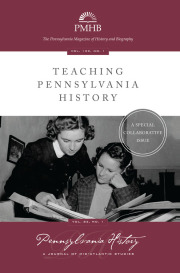Hope in Hard Times: Norvelt and the Struggle for Community during the Great Depression; The Mutual Housing Experiment: New Deal Communities for the Urban Middle Class
Main Article Content
Abstract
Among the understudied aspects of the New Deal are economic cooperatives, which some proponents saw as a middle ground between capitalism and communism. Two new books help to redress this oversight. Both focus on aspects of Franklin Roosevelt’s administration’s cooperative housing policy, and both use their case studies to demonstrate larger strengths and weaknesses of New Deal policy. Timothy Kelly, Margaret Power, and Michael Cary have produced an elegantly written and historiographically engaged study of the “subsistence homestead” community of Norvelt, in Pennsylvania’s hard-hit bituminous coal country. Kristin Szylvian addresses a wider geographical area in her exhaustively researched survey of “mutual housing” originally geared toward the needs of defense industry workers in the late 1930s and early 1940s. Her book, too, takes the mid-Atlantic as a focal point, paying special attention to housing for shipbuilders in Camden, New Jersey. Both programs, and both books, resonate with significance for recent events, too.
Article Details
Pennsylvania History is the official journal of the Pennsylvania Historical Association, and copyright remains with PHA as the publisher of this journal.
